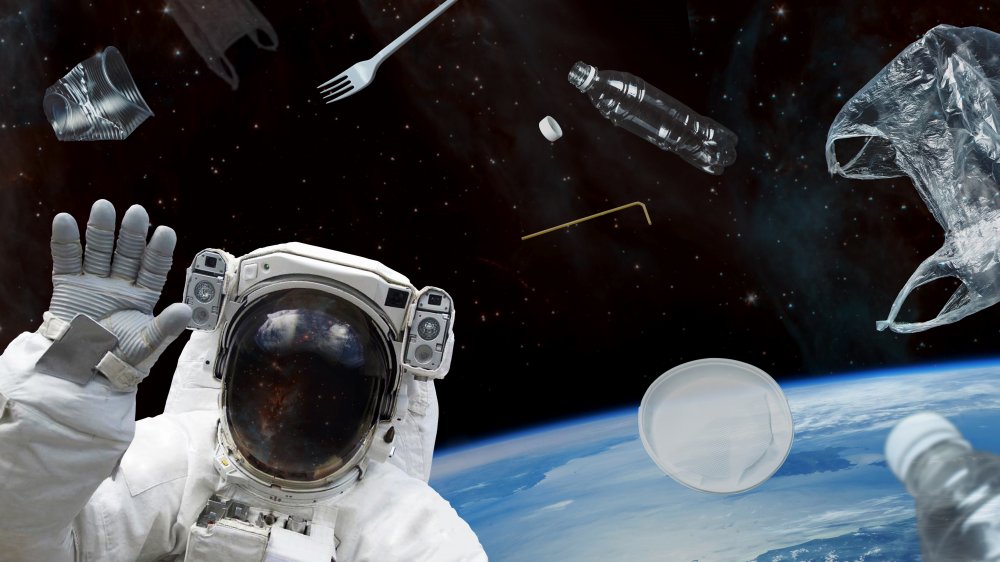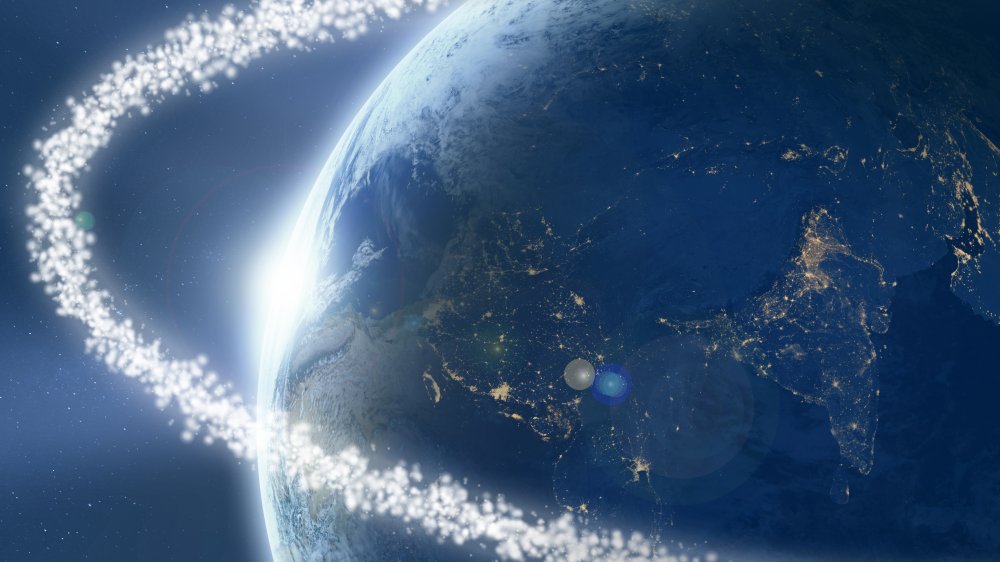Europe Launching 'Suicide Robot' To Hug Space Trash To Death
We humans have a tendency to not clean up after ourselves. Probably because we're all going to die before we have to deal with our mess. So we just puff-puff greenhouse gases into the atmosphere and pass it on to the little Thunbergs of the future — from the Greatest Generation to Greta's Generation.
But something's gotta give, and it's either going to be our addiction to pollutants or the planet. As Greta said to today's adults: "The eyes of all future generations are upon you. And if you choose to fail us, I say – we will never forgive you."
Thankfully, some people today are choosing not to fail the people of tomorrow. Right up there with the best of them is the European Space Agency, which Space.com says is launching a 'suicide robot' to help rid the Earth's orbit of decades of accumulated space junk.
"In low Earth orbit," the article reads, "the space around our planet up to about 1,200 miles (2,000 kilometers) in altitude — more than 3,000 defunct satellites and tens of millions of smaller pieces of debris clatter around the atmosphere. And each is moving at tens of thousands of miles per hour.
'Space junk' has a certain ring to it
Even the smallest bits of debris represent potential deadly consequences for space travelers, as was recently demonstrated aboard the ISS, when a fleck of paint chipped a sizeable hole in a window of the craft, per the Washington Post. It is estimated that an object just a few centimeters across could obliterate the entire station.
In other words, if we ever plan on getting off of this planet, our future depends on cleaning this junk up. To that end, the ESA will launch ClearSpace-1, ESA — an "experimental, four-armed robot" designed to "grasp a defunct satellite in its clutches, hug the object close, then finally drag it on a kamikaze dive into Earth's atmosphere — destroying both devices."
While the global impact of this one satellite removal will be minimal, it's as much about paving the way for future missions on a grander scale. We're still new to all things space, which is we the ESA is also teaming up with NASA to study how to destroy asteroids on a collision course with Earth. Hopefully everything goes "smashingly."

